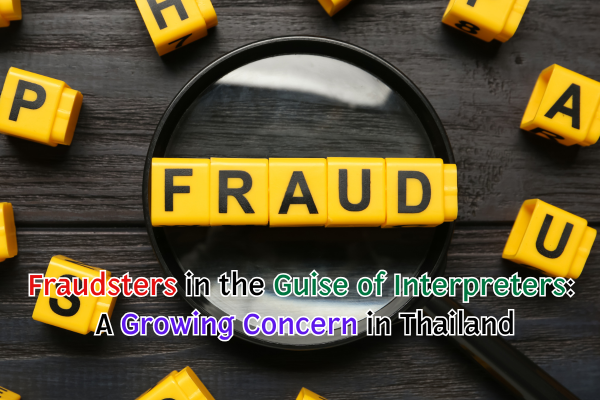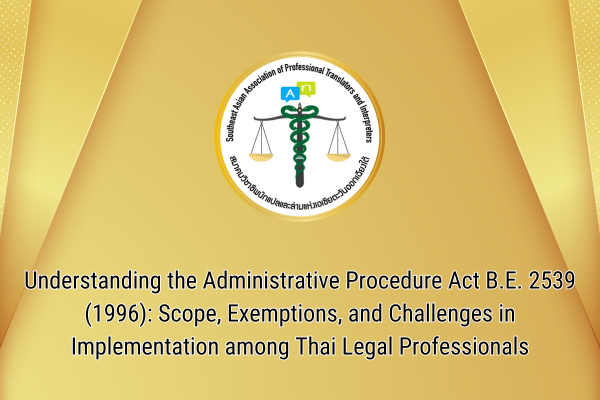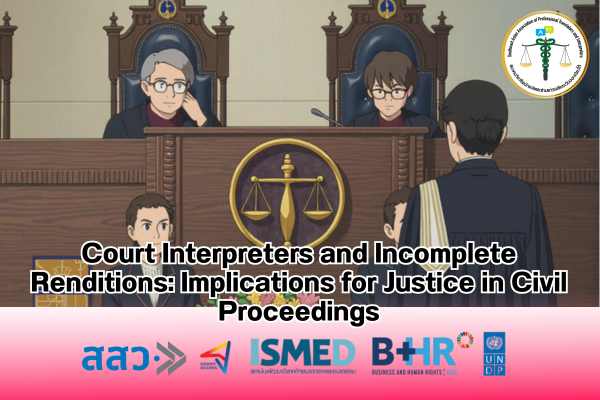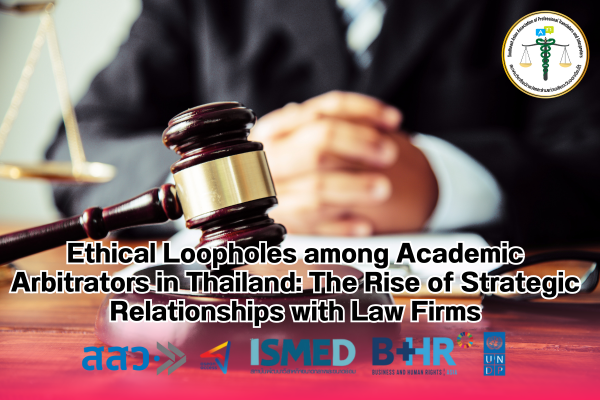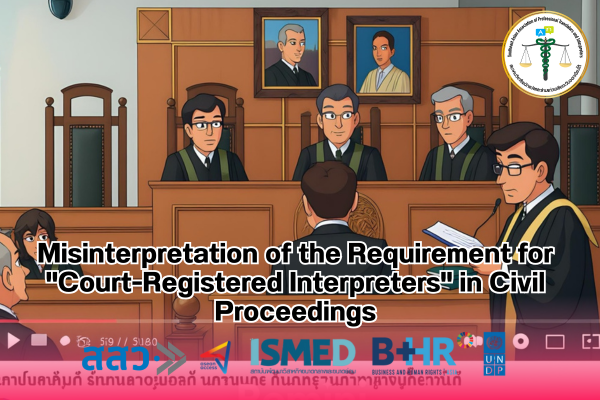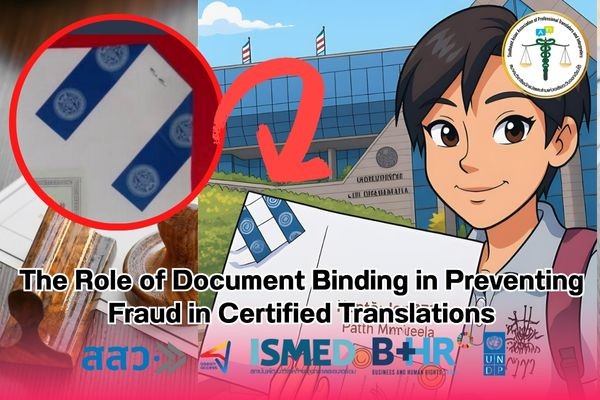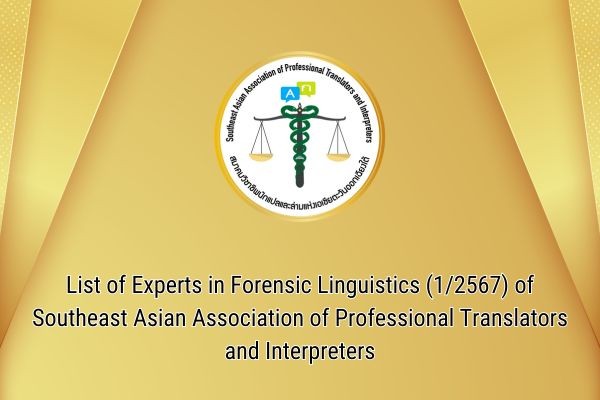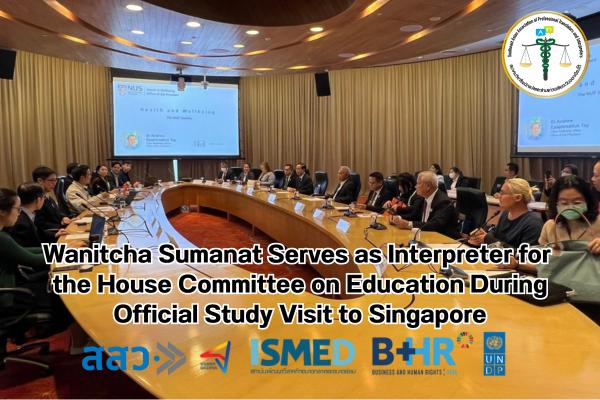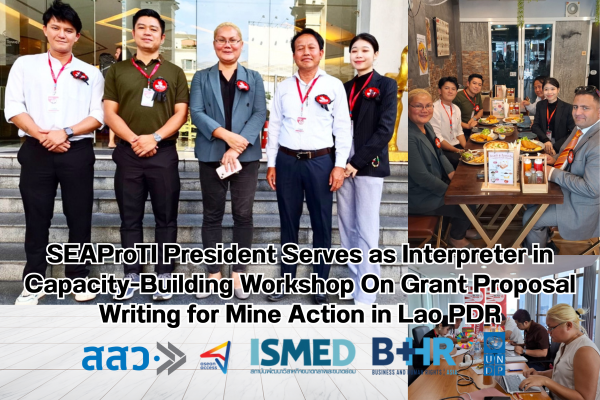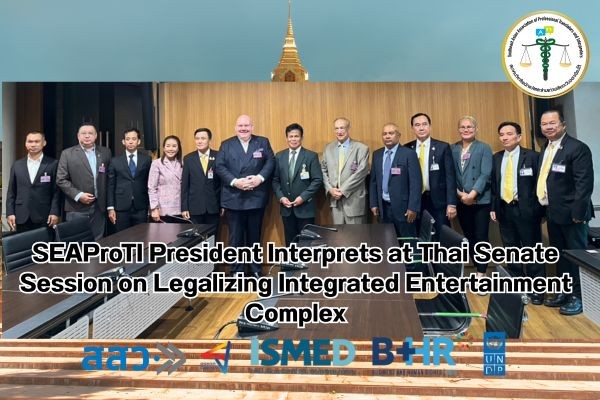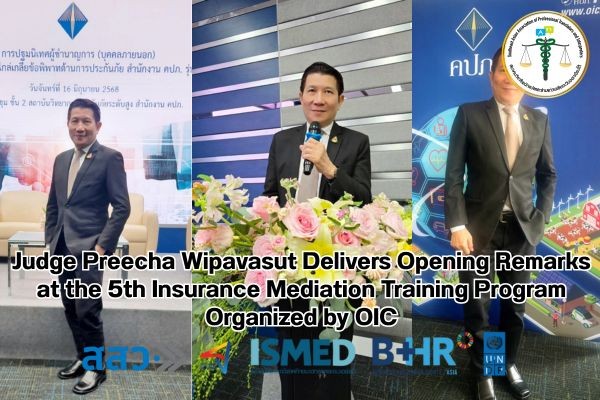In recent years, the interpreting industry in Thailand has faced an alarming trend: the rise of fraudulent interpreters. These individuals often pose as qualified professionals, presenting fake degrees and certifications to secure lucrative opportunities. The issue extends beyond simple deception; it has significant consequences for the clients who rely on these supposed experts. From miscommunication in high-stakes business meetings to inaccuracies in legal contexts, the impact of fraudulent interpreters can be disastrous.
Fake Degrees and Minimal Training
A recurring theme among these fraudulent interpreters is the falsification of qualifications. Many claim to have graduated from prestigious overseas universities or language programs, often after undergoing only minimal language training. Some even try to emulate accents, adopting what has been described as a “Disney-like” accent, in an attempt to present themselves as native or near-native speakers. While this may impress clients initially, their lack of true proficiency soon becomes evident, particularly in challenging or specialized interpreting scenarios.
In Chiang Mai, a network selling counterfeit degrees from foreign universities was uncovered by the Department of Special Investigation (DSI) in collaboration with the Coordinating Centre for the Public Higher Education Staff (CHES). These fraudulent degrees allowed individuals with only basic language skills to secure interpreting jobs or even positions as language instructors. Similarly, Khao San Road in Bangkok has long been notorious for its vendors selling fake documents, including degrees and language proficiency certificates. Such fraudulent credentials have enabled individuals to misrepresent themselves as qualified interpreters, deceiving both employers and clients.
The Consequences of Fraudulent Interpreting
The consequences of employing an unqualified interpreter can be severe. In legal proceedings, even a small misinterpretation can alter the outcome of a case, potentially leading to miscarriages of justice. In business settings, inaccuracies in interpreting can cause misunderstandings that result in financial losses or damaged relationships. The trust placed in interpreters is paramount, and when this trust is betrayed, the ramifications can be long-lasting and far-reaching.
One notable case involved a husband-and-wife team posing as interpreters during a police operation. In 2024, they were accused of assisting officers in extorting money from a Chinese businessman, ultimately obtaining a large sum in cryptocurrency. Although they claimed they were only there to provide translation services, their involvement highlights the potential dangers of employing interpreters whose qualifications and ethics are questionable.
Identifying and Avoiding Fraudulent Interpreters
To protect themselves from falling victim to fraudulent interpreters, individuals and organizations must take proactive steps. Credential verification is essential—employers should contact the institutions that issued the degrees or certifications to ensure their authenticity. Relying on interpreters who are members of recognized professional bodies, such as the Southeast Asian Association of Professional Translators and Interpreters (SEAProTI), also provides an additional layer of credibility.
Background checks are another crucial step in the hiring process. These checks can help identify discrepancies in an interpreter’s claimed qualifications and experience. In addition, conducting language proficiency assessments can further validate an interpreter’s skills before entrusting them with critical assignments.
Protecting the Integrity of the Industry
The rise of fraudulent interpreters not only affects clients but also tarnishes the reputation of the interpreting industry as a whole. Professional associations such as SEAProTI are working to establish rigorous standards and certification processes to ensure that only qualified interpreters are allowed to practice. By emphasizing continuous education and stringent certification requirements, the industry can begin to weed out fraudsters and rebuild trust with clients.
Conclusion
The interpreting profession requires a high level of skill, integrity, and dedication. Fraudulent interpreters, armed with fake degrees and minimal training, undermine the trust that clients place in professionals and pose serious risks in both business and legal settings. By taking steps to verify credentials, relying on professional associations, and conducting thorough background checks, individuals and organizations can protect themselves from these fraudsters and contribute to maintaining the integrity of the interpreting industry in Thailand.
Ultimately, ensuring that interpreters are properly vetted is not just about preventing fraud—it’s about upholding the quality and reliability of interpreting services that so many depend on.
มิจฉาชีพคราบล่าม: ปัญหาที่เพิ่มขึ้นในประเทศไทย
ในช่วงไม่กี่ปีที่ผ่านมา อุตสาหกรรมการแปลและล่ามในประเทศไทยต้องเผชิญกับแนวโน้มที่น่าตกใจ คือการเพิ่มขึ้นของล่ามที่ไม่มีคุณสมบัติที่แท้จริง บุคคลเหล่านี้มักจะแอบอ้างเป็นมืออาชีพที่มีคุณสมบัติ โดยใช้ปริญญาและใบรับรองปลอมเพื่อให้ได้มาซึ่งโอกาสที่มีกำไร ปัญหานี้ไม่ได้เป็นแค่การหลอกลวงเท่านั้น แต่ยังส่งผลกระทบอย่างมากต่อผู้ที่ต้องพึ่งพาผู้เชี่ยวชาญเหล่านี้ ตั้งแต่ความผิดพลาดในการสื่อสารในการประชุมธุรกิจที่มีเดิมพันสูงไปจนถึงความไม่ถูกต้องในบริบททางกฎหมาย ผลกระทบของล่ามที่ไม่มีคุณสมบัติสามารถก่อให้เกิดความเสียหายอย่างมาก
ปริญญาปลอมและการฝึกฝนที่น้อยนิด
ลักษณะที่เกิดขึ้นบ่อยในกลุ่มล่ามเถื่อนเหล่านี้คือการปลอมแปลงคุณสมบัติ หลายคนอ้างว่าจบการศึกษาจากมหาวิทยาลัยหรือต่างประเทศชื่อดัง ทั้งที่พวกเขาเพิ่งผ่านการฝึกฝนทางภาษาขั้นพื้นฐานเท่านั้น บางคนยังพยายามเลียนแบบสำเนียง โดยใช้สำเนียงที่เหมือนกับในภาพยนตร์ดิสนีย์ เพื่อให้ดูเหมือนเป็นเจ้าของภาษา หรือมีทักษะภาษาใกล้เคียงกับเจ้าของภาษา แม้ว่าสิ่งนี้อาจสร้างความประทับใจให้กับลูกค้าในตอนแรก แต่ทักษะที่แท้จริงของพวกเขากลับขาดหายไป โดยเฉพาะในสถานการณ์การแปลที่ซับซ้อนหรือเฉพาะทาง
ในเชียงใหม่ มีการค้นพบเครือข่ายที่ขายปริญญาปลอมจากมหาวิทยาลัยต่างประเทศ โดยความร่วมมือระหว่างกรมสอบสวนคดีพิเศษ (DSI) และศูนย์ประสานงานบุคลากรการอุดมศึกษาของรัฐ (CHES) ปริญญาปลอมเหล่านี้ทำให้บุคคลที่มีทักษะทางภาษาเบื้องต้นสามารถได้รับงานเป็นล่ามหรือแม้กระทั่งตำแหน่งครูสอนภาษา ในทำนองเดียวกัน ถนนข้าวสารในกรุงเทพฯ ก็เป็นที่รู้จักมานานว่ามีพ่อค้าขายเอกสารปลอม รวมถึงปริญญาและใบรับรองทักษะทางภาษา เอกสารปลอมเหล่านี้ทำให้บุคคลสามารถแอบอ้างว่าเป็นล่ามที่มีคุณสมบัติ ทำให้ทั้งนายจ้างและลูกค้าหลงเชื่อ
ผลกระทบจากการแปลเถื่อน
ผลกระทบจากการจ้างล่ามที่ไม่มีคุณสมบัติอาจร้ายแรงมาก ในกระบวนการทางกฎหมาย แม้การแปลผิดเพียงเล็กน้อยก็สามารถเปลี่ยนแปลงผลของคดีได้ อาจนำไปสู่ความยุติธรรมที่ผิดพลาด ในบริบทธุรกิจ ความผิดพลาดในการแปลสามารถทำให้เกิดความเข้าใจผิด ที่ส่งผลให้เกิดการสูญเสียทางการเงินหรือความสัมพันธ์ทางธุรกิจที่เสียหาย ความไว้วางใจที่ลูกค้ามีต่อล่ามเป็นสิ่งสำคัญ และเมื่อความไว้วางใจนี้ถูกหักหลัง ผลกระทบสามารถยาวนานและลุกลามได้
ตัวอย่างหนึ่งที่น่าสนใจคือกรณีสามีภรรยาที่แอบอ้างเป็นล่ามในการปฏิบัติการของตำรวจ ในปี 2024 พวกเขาถูกกล่าวหาว่าช่วยเจ้าหน้าที่ตำรวจในการรีดไถเงินจากนักธุรกิจชาวจีน ซึ่งในที่สุดได้รับเงินจำนวนมากในรูปสกุลเงินคริปโต แม้ว่าพวกเขาจะอ้างว่ามีหน้าที่เพียงแค่แปลภาษา แต่การมีส่วนร่วมของพวกเขาก็แสดงให้เห็นถึงความเสี่ยงของการจ้างล่ามที่ไม่มีคุณสมบัติและขาดจริยธรรม
การระบุและหลีกเลี่ยงล่ามเถื่อน
เพื่อป้องกันตนเองจากการตกเป็นเหยื่อของล่ามเถื่อน บุคคลและองค์กรต้องดำเนินการอย่างเป็นระบบ การตรวจสอบคุณสมบัติเป็นสิ่งสำคัญ นายจ้างควรติดต่อสถาบันที่ออกปริญญาหรือใบรับรองเพื่อตรวจสอบความถูกต้อง การพึ่งพาล่ามที่เป็นสมาชิกขององค์กรวิชาชีพที่ได้รับการยอมรับ เช่น สมาคมวิชาชีพนักแปลและล่ามแห่งเอเชียตะวันออกเฉียงใต้ (SEAProTI) ก็สามารถเพิ่มความน่าเชื่อถือได้อีกขั้น
การตรวจสอบประวัติเป็นอีกขั้นตอนสำคัญในการจ้างงาน การตรวจสอบนี้สามารถช่วยระบุความไม่สอดคล้องกันในคุณสมบัติและประสบการณ์ที่ล่ามกล่าวอ้างได้ นอกจากนี้ การทดสอบความสามารถทางภาษาก็เป็นวิธีหนึ่งที่สามารถตรวจสอบทักษะของล่ามก่อนที่จะมอบหมายงานสำคัญให้กับพวกเขา
การปกป้องความซื่อสัตย์ของอุตสาหกรรม
การเพิ่มขึ้นของล่ามเถื่อนไม่เพียงส่งผลกระทบต่อผู้ใช้บริการ แต่ยังทำลายชื่อเสียงของอุตสาหกรรมการแปลและล่ามทั้งหมด องค์กรวิชาชีพเช่น SEAProTI กำลังพยายามกำหนดมาตรฐานที่เข้มงวดและกระบวนการรับรองเพื่อให้แน่ใจว่ามีเพียงล่ามที่มีคุณสมบัติเท่านั้นที่ได้รับอนุญาตให้ปฏิบัติงาน ด้วยการเน้นการศึกษาอย่างต่อเนื่องและข้อกำหนดการรับรองที่เข้มงวด อุตสาหกรรมสามารถเริ่มคัดกรองผู้ที่ไม่มีคุณสมบัติและฟื้นฟูความไว้วางใจจากลูกค้า
บทสรุป
อาชีพล่ามต้องการทักษะสูง ความซื่อสัตย์ และความทุ่มเท ล่ามเถื่อนที่ใช้ปริญญาปลอมและการฝึกฝนที่น้อยนิด ทำลายความไว้วางใจที่ลูกค้ามีต่อมืออาชีพ และก่อให้เกิดความเสี่ยงร้ายแรงทั้งในบริบทธุรกิจและกฎหมาย การตรวจสอบคุณสมบัติ การพึ่งพาองค์กรวิชาชีพ และการตรวจสอบประวัติอย่างละเอียด สามารถช่วยป้องกันบุคคลและองค์กรจากผู้หลอกลวงเหล่านี้ และช่วยรักษาความซื่อสัตย์ของอุตสาหกรรมการแปลและล่ามในประเทศไทย
ท้ายที่สุด การตรวจสอบคุณสมบัติของล่ามอย่างเหมาะสมไม่ใช่แค่การป้องกันการฉ้อโกงเท่านั้น แต่เป็นการรักษาคุณภาพและความน่าเชื่อถือของบริการแปลที่หลายคนพึ่งพา


